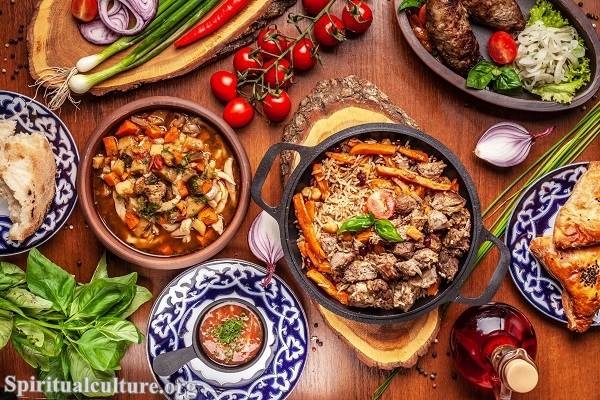How to determine if food is Halal or not?
The basic guidelines for determining if a food is halal are:
- The animal must be slaughtered while facing Mecca in the name of Allah.
- Blood must be fully drained from the animal.
- Pork and its by-products are prohibited.
- Alcohol is not allowed.
In addition, some Islamic scholars also prohibit the consumption of certain other foods, such as carnivorous animals, birds of prey, and animals not slaughtered in the name of Allah. Some processed foods may also be deemed haram (prohibited) if they contain ingredients derived from prohibited sources, such as gelatin made from pork.

Halal food list
Halal food includes:
- Meat from animals slaughtered while facing Mecca
- Fish and sea creatures
- Dairy products (e.g. milk, cheese, yogurt)
- Fruits and vegetables
- Grains (e.g. rice, wheat, barley, corn)
- Legumes (e.g. lentils, chickpeas, beans)
- Nuts and seeds
- Honey
- Alcohol is prohibited.
The concept of halal extends beyond food and also applies to other aspects of life, such as cosmetics, personal care products, and financial transactions.
Halal certification organizations, such as the Halal Certification Agency, are established to ensure that products meet the standards for halal. These organizations conduct audits, perform inspections, and issue certifications to indicate that a product is halal.
It is worth noting that the concept of halal can vary within the Muslim community, and there may be some cultural or regional differences in interpretation and application. In general, however, halal principles emphasize the importance of cleanliness, humane treatment of animals, and avoiding ingredients and practices that are harmful to the consumer’s health.



